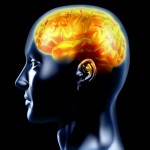Such turns of phrase, invoking a physical reality that stands in for intangible concepts, might seem like linguistic flights of fancy. But a rapidly growing body of research indicates that metaphors joining body and mind reflect a central fact about the way we think: the mind uses the body to make sense of abstract concepts. Thus, seemingly trivial sensations and actions—mimicking a smile or a frown, holding smooth or rough objects, nodding or giving a thumbs-up—can influence high-level psychological processes such as social judgment, language comprehension, visual perception and even reasoning about insubstantial notions such as time. Curious? Continue reading
Source: Scientific American

